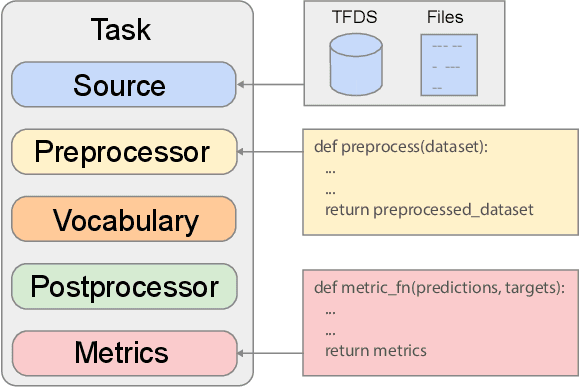Colin Gaffney
Gemini 1.5: Unlocking multimodal understanding across millions of tokens of context
Mar 08, 2024Abstract:In this report, we present the latest model of the Gemini family, Gemini 1.5 Pro, a highly compute-efficient multimodal mixture-of-experts model capable of recalling and reasoning over fine-grained information from millions of tokens of context, including multiple long documents and hours of video and audio. Gemini 1.5 Pro achieves near-perfect recall on long-context retrieval tasks across modalities, improves the state-of-the-art in long-document QA, long-video QA and long-context ASR, and matches or surpasses Gemini 1.0 Ultra's state-of-the-art performance across a broad set of benchmarks. Studying the limits of Gemini 1.5 Pro's long-context ability, we find continued improvement in next-token prediction and near-perfect retrieval (>99%) up to at least 10M tokens, a generational leap over existing models such as Claude 2.1 (200k) and GPT-4 Turbo (128k). Finally, we highlight surprising new capabilities of large language models at the frontier; when given a grammar manual for Kalamang, a language with fewer than 200 speakers worldwide, the model learns to translate English to Kalamang at a similar level to a person who learned from the same content.
Gemini: A Family of Highly Capable Multimodal Models
Dec 19, 2023Abstract:This report introduces a new family of multimodal models, Gemini, that exhibit remarkable capabilities across image, audio, video, and text understanding. The Gemini family consists of Ultra, Pro, and Nano sizes, suitable for applications ranging from complex reasoning tasks to on-device memory-constrained use-cases. Evaluation on a broad range of benchmarks shows that our most-capable Gemini Ultra model advances the state of the art in 30 of 32 of these benchmarks - notably being the first model to achieve human-expert performance on the well-studied exam benchmark MMLU, and improving the state of the art in every one of the 20 multimodal benchmarks we examined. We believe that the new capabilities of Gemini models in cross-modal reasoning and language understanding will enable a wide variety of use cases and we discuss our approach toward deploying them responsibly to users.
Scaling Up Models and Data with $\texttt{t5x}$ and $\texttt{seqio}$
Mar 31, 2022

Abstract:Recent neural network-based language models have benefited greatly from scaling up the size of training datasets and the number of parameters in the models themselves. Scaling can be complicated due to various factors including the need to distribute computation on supercomputer clusters (e.g., TPUs), prevent bottlenecks when infeeding data, and ensure reproducible results. In this work, we present two software libraries that ease these issues: $\texttt{t5x}$ simplifies the process of building and training large language models at scale while maintaining ease of use, and $\texttt{seqio}$ provides a task-based API for simple creation of fast and reproducible training data and evaluation pipelines. These open-source libraries have been used to train models with hundreds of billions of parameters on datasets with multiple terabytes of training data. Along with the libraries, we release configurations and instructions for T5-like encoder-decoder models as well as GPT-like decoder-only architectures. $\texttt{t5x}$ and $\texttt{seqio}$ are open source and available at https://github.com/google-research/t5x and https://github.com/google/seqio, respectively.
 Add to Chrome
Add to Chrome Add to Firefox
Add to Firefox Add to Edge
Add to Edge